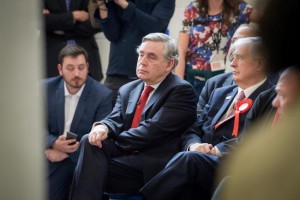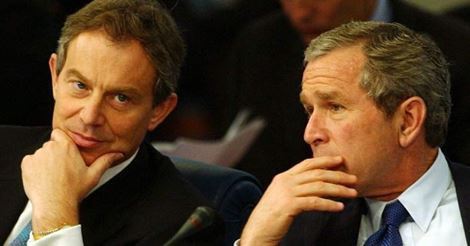So they’re all turning against Ed Milliband apparently; at least that’s the picture being painted on news programmes and by political journalists.
A picture of scheming, plotting Shadow Cabinet Ministers and MPs preparing to stage a coup in the Labour Party and install a new leader in time for next year’s General Election.
Not that I have any particularly strong opinions about Milliband one way or the other, but it’s hard not to have the impression that the Labour leader is highly disliked by mainstream and popular media, which seems to have gone out of its way to collectively snipe at him for the entire length of his leadership, methodically eat away at his credibility and brand him as a figure of ridicule.
There was something similar being conducted against Gordon Brown ahead of the previous General Election whereby virtually all coverage of Brown was decidedly unflattering, derisive or otherwise designed to impede. This was to the extent that when Brown appeared even on BBC’s Newsnight to speak seriously about policy, he was asked “Why does nobody like you?” right at the outset; thus undermining all the rest of what Brown was going to speak about.
Granted, British journalists are rarely if ever flattering about any of the main political leaders or parties (and nor should they be particularly); but even so, it is discernible when a concerted campaign is being conducted against one political figure in particular and for the purposes of directing public perceptions and ultimately the outcome of a major election.
The media’s attitude towards Brown probably cost him that previous election. The same will almost certainly be the case for Ed Milliband as well. That’s assuming he isn’t ousted from the party by then; that impression of disunity and disloyalty that is given when senior party figures openly talk of revolt will probably undermine the party’s campaign anyway.
In this post-Blair political culture, success or failure is decided on image and not substance or capabilities.
As far as the major parties and their leaders go, we really are living in what I call ‘Attack of the Clones’; subject to that perfect mold of polished, media-savvy, though essentially Etonian-brand ‘statesman’ and the stomach-turning photo ops, toothy-smiled veneer and idyllic, perfect family units made visible wherever possible. It feels so often like a factory line rolling off replacement models periodically, because this is the ‘brand’ that ‘sells’, as though Simon Cowell and Max Clifford were running our political system.
Which, of course, isn’t far off the truth – given the power of king-maker being wielded by such corporate giants as Rupert Murdoch. The power to virtually dictate an election outcome.
That’s why eighty percent of the negative coverage given to Ed Milliband is based on his looks and slightly ‘geeky’ mannerisms and not on anything he’s actually saying (again, the same with Gordon Brown).
I was sceptical of the last election right form the outset on account of the way Gordon Brown was being portrayed in the media. It seemed to have been decided be mass media vote that Brown was not going to be allowed to win that election. There may have been various, differing reasons for this, but one of them was certainly that he simply didn’t fit the ‘brand’; he was too old, slightly cumbersome in physical terms, slightly uneven eyes, and he was terrible at doing the Blair-like fake smile, glossy veneer and PR management and he was essentially difficult to ‘sell’ in terms of the X-Factor style campaign.
What was worse, as an observer, was to watch Brown clearly being told by his advisers to try to play the game more in those terms; hence those admittedly creepy-looking fake smiles and attempts to appear more Blair-like on camera.

It isn’t that Brown’s smiles were fake – everyone’s smiles were fake, Cameron’s, Clegg’s and all – it was simply that Brown wasn’t good at being fake.
Which surely should be perceived as complimentary to Brown; instead it was taken as a negative by swathes of the electorate who evidently believed that image was more important than substance largely because the mass media had told them that.
What’s saddest is that someone like Brown was basically unable to wage that election campaign on policy or issues and instead had to lower himself to waging it on superficialities; and losing it because he’s essentially not cut from that cloth.
Yet the recent Scottish Referendum gave Brown a platform to demonstrate his potency as a statesman and speaker; even many of those journalists and commentators who’d utterly slaughtered him in the run-up to the last General Election were suddenly forced to change their tune somewhat.
For all that’s worth now.
In any case, with voter apathy being what it is, it’s difficult to see next year’s General Election having a high voter turn-out: and, if the corporate media has its way, it will certainly result in another Conservative government.
The pantomime will play out, and then there’ll be four more years of a smokescreen government beholden to banking elites, corporations, unelected cabals and the other various unelected forces that broadly determine the course of government and policy. Welcome to the Cynic’s Corner.




